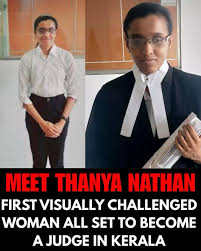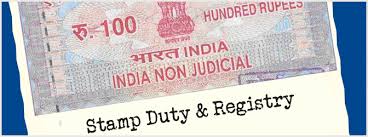Thottathil B. Radhakrishnan, J.@mdashW.P.(C). No. 14251 of 2012 is filed by two petitioners, of whom one is stated to be an Advocate practicing before this Court. W.P.(C). No. 213 of 2013 is filed by one describing himself as a Trade union activist. The crux of the Writ Petitions is the bundle of allegations that a company, Harrisons Malayalam Limited, hereinafter referred to as "HML", and its transferees,'' including Gospel for Asia, for short, "GFA", are holding lands which are essentially Government lands and the concerned statutory authorities are fighting shy to invoke and exercise authority under the provisions of the Kerala Land Conservancy Act, 1957, hereinafter referred to as "L.C. Act".
2. We have to note, before proceeding further, that a return filed before the Taluk Land Board, Vythiry by a company led to a revision under S. 103 of the Kerala Land Reforms Act, 1963 before this Court. After hearing that revision, quite elaborately and on an elaborate consideration of the entire factual matrix as placed before this Court then, very ably by the learned Government Pleader who appeared on behalf of the State Government in that case, this Court made an order of remit to the Taluk Land Board as regards some of the issues covered by the ceiling proceedings.
3. With the passage of time, different litigations came, generating also the issue as to whether HML could be treated as the repository of title of the original holder of the lands, and also different other issues as to possession; excess land; allegations as to trespass by Government officials etc.
4. With the passage of time, the State Government has filed O.P.(C). No. 3508 of 2011 invoking Art. 228 along with Art. 227 of the Constitution of India, pleading that the TLB proceedings before the Taluk Land Board, Vythiry, be called for to this Court since certain questions as to the interpretation of the Constitution of India arise for decision in that case. The learned Special Government Pleader on behalf of the State has pointed out that the contentions of the State in that Original Petition have to be understood as broadly two-fold; (1) constitutional issues relating to questions arising from the matter which stands remitted to the TLB by the revisional order of this Court; and, (2) constitutional issues relatable to the entire TLB proceedings from its inception. The latter among the two grounds pointed out by her revolves on the State''s attempt to demonstrate that the entire transactions under which HML and its transferees now claim are ridden with violation of the Constitution and the laws, including FERA, FEMA and also various land laws. It is pointed out by the learned Special Government Pleader that, according to the Government, such fraud played, amounts to fraud on the Constitution and the lands in issue are essentially that which will have to be, treated as Government lands by way of escheat or applying the doctrine of bona vacantia as reflected in Art. 296 of the Constitution.
5. While the Writ Petitions in hand are filed primarily complaining about the inaction on the part of the statutory authorities under the L.C. Act, W.P.(C). No. 213 of 2013 also contains reliefs requiring interdictory orders and also directions having a bearing on the alleged amalgamation of companies and the conduct of officers of HML in India.
6. Having perused the quality of the pleadings in W.P.(C). No. 213 of 2013 and looking at the sanction order issued by the Company Court on the application approving the scheme of merger; particularly the conditions imposed thereby, we are of the view that exercise of jurisdiction under Art. 226 does not need to be extended to any matter touching the activities of H.M.L., since those are matters that could gain attention, if need be, in other jurisdictions, in accordance with law.
7. Be that as it may, if the Government stand by the assertion that the properties in the possession of H.M.L. or its transferees are Government lands or are lands which are recoverable under the provisions of L.C. Act, the bare minimum for any action to start, is by issuance of due and appropriate notice. This is not something to be done on any prompting of any other authority, but has to be done on the satisfaction of the competent authority under the L.C. Act regarding the existence of grounds to proceed under that Act. We may pause here to recall that in so far as G.F.A. is concerned, there are certain observations in the judgments issued by the Division Bench of this Court in W.P.(C). No. 6258 of 2010 and connected cases and in R.P. No. 676 of 2011 in W.P.(C). No. 32628 of 2007 and connected cases which tend to indicate that the proceedings for recovery, even through the L.C. Act, should stand deferred till identification of the lands, we record this going by the submissions of the learned senior counsel appearing on behalf of the GFA, without ourselves expressing anything on that, G.F.A.''s learned senior counsel also further submitted that there appears to be an indication in those judgments of the Division Bench that the State, if at all, has to take recourse to other proceedings, rather than those under the L.C. Act. We do not express anything on that now and we leave open that issue for the time being.
8. One thing is certain; even if lands are covered by orders issued by the Land Board in a ceiling case, if the Government were to contend specifically that the lands are Government lands or are lands which the Government are entitled to reach at, through the process of the L.C. Act, it would be within the jurisdiction of the competent statutory authority to initiate action. This is because, title to property is not what is decided in the Land Board proceedings in a ceiling case as between the declarant and the State, though such issues may be germane while exemptions or identification of excess, are to be decided by the Land Board, as between the declarant and other parties appearing before the Land Board. If the Government have the case that the paramount title to the land rests with them, they would be at liberty to initiate action in accordance with law.
9. We may also record the submission of the learned senior counsel for H.M.L. that in cases where L.C. Act proceedings are to fail on a jurisdictional issue, the Company or the person notified of such proceedings would have the authority to challenge such proceedings on a jurisdictional issue and that in given situations, it would be for the State to sue and seek for declaration and other reliefs through the civil court rather than initiate proceedings under the L.C. Act. Whatever arguments may be addressed at this point of time, we would stand dissuaded from answering any jurisdictional issue or any other aspect that may arise, if and when the competent authority under the L.C. Act issues notice, we also would not now speak on the quality of the State Government''s rights or any other issues since it will be premature for us to express on that. Judicial discipline advises us that we will not carry ourselves beyond issues in praesenti, to speak on matters which may or may not arise between the parties at a future point of time. Not only that, we would cautiously guard this Court''s power and jurisdiction from being utilised to answer issues pre-judging matters which statutory authorities or other executive authorities have to decide. No decision of this Court can be obtained to pre-empt; or to be treated as a caveat or an anticipatory clearance for any proposed statutory or other administrative action. For support, see the decision of the Hon''ble supreme Court of India in
For the aforesaid reasons, without expressing anything on merits, these Writ Petitions are ordered directing that if the competent authority or authorities in the State administration as are authorized in terms of the provisions of the L.C. Act, decide to initiate action against any of the properties in the possession of HML or any of its transferees or persons in occupation, they may do so strictly in accordance with law. If such authority concludes that action has to be so taken, let steps be initiated in that regard within a period of two months from the date of receipt of a copy of this judgment. Let proceedings follow thereupon, after affording due opportunity of hearing to all parties entitled to be heard in that regard.

